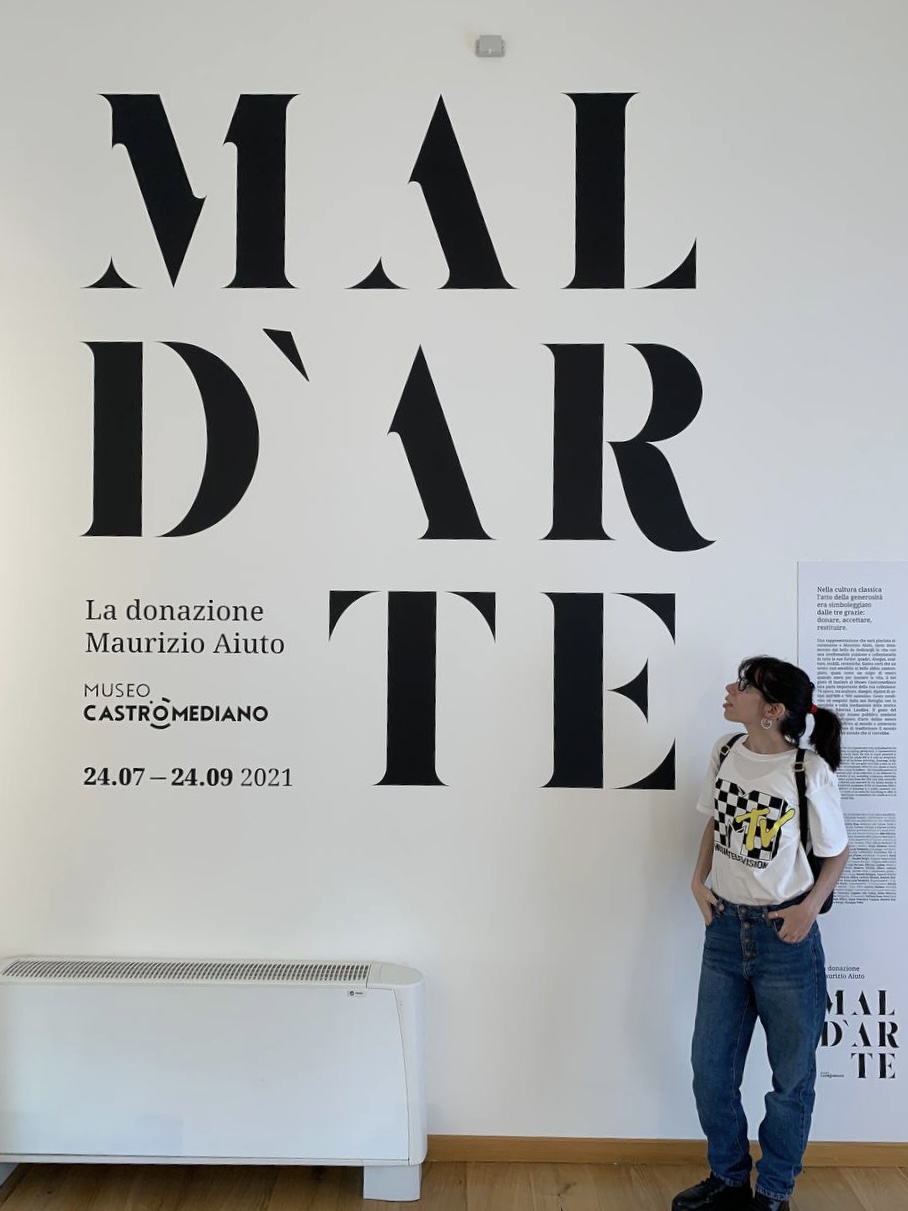Among the youngsters in the contemporary art world, Daniele Di Girolamo, born in 1995, embodies that perceptive sensitivity that becomes artistic research through the sounds and visions of a human and landscape nature dedicated to its own evolution. An evolution that, in the exhibition Correct ways to misunderstand, presented at Traffic Gallery, Bergamo, from 1st October to 31st December 2022, becomes a misunderstanding, thus its absolute protagonist. What is misunderstanding? If we were to analyze it from a linguistic-interpretative point of view, we would define it as the communication error that is generated when a communicative imbalance occurs between the sender and the recipient. Since when the expression has become an integral part of our communication system, even misunderstanding has became an important element in our daily life. Why not see this “mistake” as a positive event from which to take advantage of it to study all the components that make it an interesting turning point within the communication itself? And here comes Daniele Di Girolamo’s exhibition, curated by Leonardo Regano and accompanied by the textual contribution of critic and curator Francesca Marcaccio Hitzeman. In the show, the young artist from Abruzzo presents the result of the research period carried out during the Hong Kong protests (which took place between September and November 2019), where the linguistic, cultural and interpretative misalignment offers new visions and interpretations.

Daniele Di Girolamo, Traffic Gallery, 2022. Ph. Paolo Biava
Antonella Buttazzo: Would you like to tell us about your experience in Hong Kong?
Daniele Di Girolamo: In 2019 I was there for a study exchange (I was with Manrico Pacenti, artist and academy classmate at the time). The protests situation was definitely bigger than what arrived in Italy. It has been a very intense period where I may have understood the 1% of what was really going on. The gap between what was occurring and what I didn’t understand was the main point on which I built the exhibition then presented at the Traffic Gallery: the misunderstanding, element that can open up to new perceptions and interpretations.

Daniele Di Girolamo, “Why Control Everything”, Performance Dj Set, Ex Ateneo, Bergamo. Ph Paolo Biava courtesy the artist
What would you compare the misunderstanding to? Or rather, what is for you the misunderstanding if you had to describe it with an image?
Deluding myself that I own a river by filling a hundred buckets with it. Believing that a said sentence corresponds to an eternal emotion, but actually changeable. It is a great presumption to understand the reality of things, that is always a bit elusive to us. But with those hundred buckets of water I can water the garden, which isn’t a bad thing after all.

Daniele Di Girolamo, “Cockroaches Breathe Loss and Care”, 2022. Courtesy the artist and Traffic Gallery
How can art be misunderstood?
I think there is always a gap between the intention of the artist and the viewer. This is the most beautiful part of an artwork, otherwise it would be too closed and sterile. Certainly, a context is needed, a small interpretation key, otherwise the work would risk to become an empty container for one’s own use and consumption, exposed to exploitation. This is the real risk, but otherwise the richness in the diversity of perceptions is much more interesting.

Daniele Di Girolamo, “Cockroaches Breathe Loss and Care”, 2022 (detail). Courtesy the artist and Traffic Gallery
Does misunderstanding, in art, necessarily lead to a drastic break in the communication schemes between the work and the spectator?
There is always a misunderstanding. This communication system can then make us perceive it as an error. When we have to talk about a work, we reduce it to a concept summarized in a few lines, with which we are satisfied and deluded that we have gotten it. In reality, there is no right or wrong (unique) way to read a work, on the contrary, the work works when it resonates something in the one that observes it, when it opens to new perceptions of the reality in which we live in and to new questions rather than closing a speech. So can communication, becoming a key instead of a package.

Daniele Di Girolamo, “Everything is Nothing Hurt”, 2020. Courtesy the artist and Traffic Gallery
How much do your works play with perceptions?
I always try to treat the works as triggers of an experience rather than as a synthesis of a conclusive reasoning. In particular, I find myself satisfied when this experience is the perception of both an external and internal atmosphere, of which each work is a fragment. Ambiguous shapes, sounds, misunderstandings, literal interpretations are just some of the tools that help me open this non-fixed interpretative space. Thus, everything is linked to how one perceives a material, a sound, a shape.
Info:
Daniele di Girolamo, Correct ways to misunderstand
curated by Leonardo Regano
critical text by Francesca Marcaccio Hitzeman
01/10/2022 – 31/12/2022
Traffic Gallery
Via S. Tomaso 92, 24121 Bergamo
trafficgallery.org

After obtaining the high school languages diploma, she continued her studies graduating in Art History at the University of Salento, with a bilingual thesis on the Pre-Raphaelites. Since then, she has been actively contributing as a columnist and collaborator with national blogs and with local magazines and TV programs.






NO COMMENT